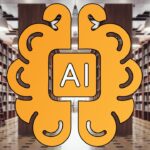Artificial Intelligence (AI) is pretty cool, right? It’s the kind of technology that has the power to change the world as we know it. But with great power comes great responsibility, as they say. In fact, AI poses some serious risks to humanity. A recent survey conducted at the Yale CEO Summit revealed that healthcare is the industry expected to experience the most significant changes thanks to AI. However, there’s a catch. Machines have the potential to make decisions that could harm individuals or society as a whole. So, what do we do about it?
Geoffrey Hinton, a big shot in the AI field, has been working on this technology for years. But even he has expressed concerns about the potential dangers of AI. In a recent interview, Hinton called for more research to better understand the risks associated with AI and regulations to ensure AI is developed in a responsible manner.
The Yale survey identified five different groups among business leaders, each with a different perspective on AI. Some are “curious creators” who are all for AI, while others are “euphoric true believers” who are optimistic about the technology. On the other hand, there are “commercial profiteers” who are all about the money and don’t really care about the risks.
To make sure we can enjoy the benefits of AI while keeping the risks to a minimum, we need to take a proactive approach. This means investing in research to better understand the potential risks and creating regulations to ensure AI is developed ethically. We also need to make sure AI aligns with our values and ethical principles.
AI could be a game-changer in the healthcare industry. It could lead to more accurate diagnoses and personalized treatment plans, and streamline business processes, which would lead to cost savings and increased productivity. But there are risks to AI development too. For example, autonomous weapons could be deployed without proper oversight, leading to unintended consequences. And what if AI was used to create fake news or manipulate public opinion? That could lead to widespread chaos.
A statement signed by numerous AI industry leaders, academics, and public figures warned of an “extinction” event resulting from AI development. The statement emphasized the need for society to take proactive measures to mitigate the dangers associated with AI.
We need to develop AI in a way that aligns with ethical principles and societal values. This means making sure AI is accountable, transparent, and explainable. Plus, we need to make sure AI isn’t used to discriminate against individuals or groups.
So, to sum it up: AI is a powerful technology with the potential to change the world. But it also poses significant risks. To make sure we can enjoy the benefits of AI while minimizing the potential dangers, we need to invest in research, create regulations, and make sure AI aligns with our values. As AI continues to grow and evolve, it’s up to us to make sure it’s developed in a responsible and ethical manner.











